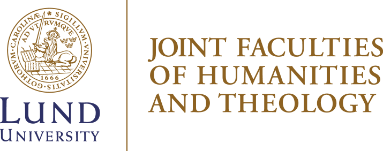Master's studies
Archaeology, Theory and Practice
This programme combines high scientific and theoretical standards with intensive practical training within Archaeology, Cultural Heritage and Museology. You will be trained in how to excavate and document the past, how to preserve artefacts and buildings and how to communicate your findings and research results to a wider audience.
Asian Studies
The aim of this transdisciplinary programme is to provide you with advanced knowledge about current issues in Asia. You will gain expertise on contemporary Asian societies and will be able to specialise, based on the regional, thematic and disciplinary focus you choose.
East and Central European Studies
The Master's programme in East and Central European Studies is a top-level education that opens up a career in governmental administration, business, military, mass media, but also prepares for further education at the postgraduate level. Here, historical, political, linguistic and cultural scientific perspectives are amalgamated in the study of the region of Eastern and Central Europe. A unique feature of the programme is the combination of analytical focus on current social, cultural and political developments in the region with solid language training.
This programme is offered every other year – applications will be accepted in autumn 2025 for 2026. The programme page will be available then.
European Studies
This is an interdisciplinary programme with a unique perspective on Europe. The program specifically targets those who are interested in understanding Europe from a broader, humanist, point of view and who want to apply this perspective in careers related to European cultural and identity politics and Europe-wide communication. Our focus lies on culture, identity and communication, addressed with both theoretical sophistication and career pragmatism.
Human Rights Studies
This programme combines historical, philosophical, political, and legal perspectives on the complex phenomenon that human rights represent in our world. We are committed to the view that human rights need to be regarded and studied not only as ethical principles or ground for law and policy, but also as part of the infrastructure of a democratic society.
Language and Linguistics
This programme consists of 18 specialisations. The many specialisations help to provide a broad selection of advanced courses in languages and in linguistics. As the programme offers many optional elements, students can choose freely between courses and design a programme to suit their interests.
Literature – Culture – Media
The aim of this master’s programme is to strengthen the student’s historical knowledge and theoretical understanding of relations between literature, culture in general and modern media. Consequently the literary text is studied from an intercultural and interdisciplinary perspective.
Religious Roots of Europe
This programme focuses on the formative periods of Judaism, Islam and Christianity, their common roots, early interaction and contributions to European culture. The programme prepares students for educational and social work in a multi-religious society or for research on the role of the three religions in European history and society.
This is a Nordic Master´s programme offered by the Centre for Theology and Religious Studies at Lund University in cooperation with the universities of Aarhus, Copenhagen and Oslo.
Visual Culture
This master's programme aims to strenghten the student's theoretical knowledge and understanding of the vital importance of images – or, the visual – for communication in society. Here, this visuality is studied from a critical and intermedial perspective, which includes elements of sound or music, and where aspects like power, history, social relations, gender, and ethnicity are central. The programme is mainly constructed as an interdisciplinary combination of Art History and Visual Studies, Film Studies, and Musicology.
This programme is offered every other year – applications will be accepted in autumn 2025 for 2026. The programme page will be available then.
- Visual Culture (Offered every second year)
- Fact sheet
